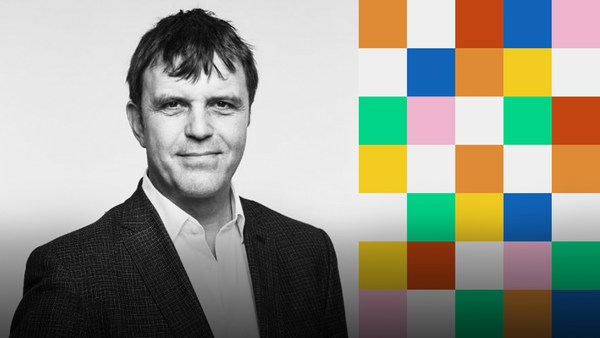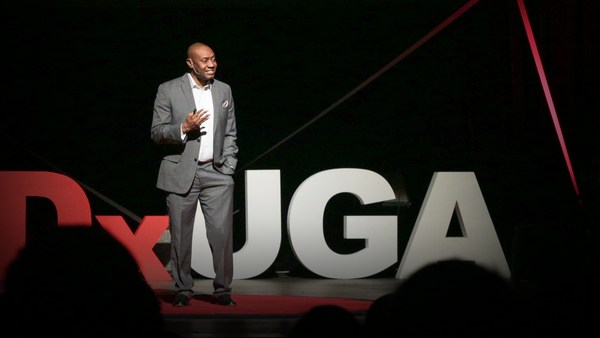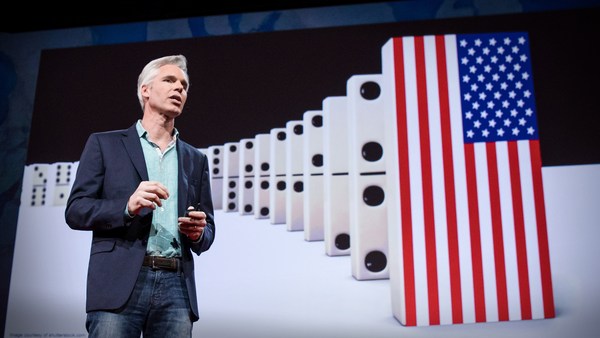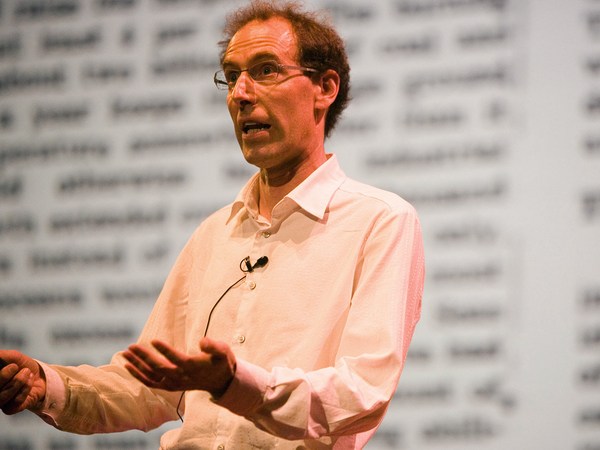I remember climbing to the top of our airing cupboard at home -- I must've been six or seven -- I'm trying to flick my wrists in the right way to make the spider web shoot out. I thought I had some super powers, I just had to work out what they were. It was a disappointing afternoon.
(Laughter)
In the end, it didn't come with a suit, but I found there aren't many people like me in the environment sector and being a Black economist who grew up in Derby is my superpower in the fight for the environment.
And we're facing huge challenges, but they are not insurmountable. People have been working on climate change and nature restoration for years and they know what we need to do, and they know the sooner we act, the easier it will be. And we're not talking about a few green sectors. We're talking about changing the whole economy, using investment and policy to reward people and businesses for the decisions they take that lower carbon and restore nature rather than degrade it.
The problem is politicians aren't acting at the speed or scale we need them to because they think the public want them to do something else first. Brexit, building more houses, the economy, Brexit, health sector, Brexit.
(Laughter)
How do we put the environment at the top of that list? My answer is ... we don’t. We look at this the other way around instead. We show how moving to a green economy delivers on the things that people are already worried about. It improves their lives, whether they care about the environment or not.
We're at the point we need to have a very different conversation with people because we need to make the case to rapidly move to a green economy, at a time people are facing real economic challenges, and we can't ask them to put that to one side. And we need to make the case to rapidly move to a green economy at a time of rising populism, which says leaving the EU or stopping immigration will solve all our problems. It won't, but we have to give people real solutions instead. So what does my perspective tell us?
I grew up in Derby, an industrial city right in the middle of the country at the foot of the peak district, some of the most beautiful countryside in the UK. And I started my career in regional economics, and I know the UK has got the biggest differences in regional economic performance of any economy in the advanced world. Wealth is concentrated in London and we spend our time -- concerning the economy, that's the only region that matters. And that really frustrates people, and it's really bad economics. For too long, we've ignored agriculture and manufacturing, two of the most important sectors for the environment, that need to pioneer new ways of producing goods and food sustainably. Being an economist, I know that UK productivity has stalled and the average weekly wage has not recovered since the financial crisis. That's a decade of lower pay. And that really hurts. We need to invest in our economy, so businesses are competing, not on the basis of low wages, but on high-design, engineering, smart use of resources, all the things we need to succeed in a green economy.
And being mixed race, I know the dangers of populism. I feel them personally. I see people being divided and told that some group or other is to blame for all their problems. And I know that's not going to improve anybody's lives, but the environment sector isn't reaching those people and we have to fix that.
You might be asking, why do we need to change the conversation now, when interest in the environment has never been higher? Aren't we already winning? Yes, in some ways we are. But we have all the people who are motivated by the plight of the polar bear and the loss of the rain forest. We have all the people who can change their whole life around and make every decision based on how they lower their carbon footprint. You might be one of those people, that is amazing, you are a trailblazer. But that is not a route that everyone can follow. And it is not enough to rely on what individuals can do by themselves.
Now, we also need the backing of people who've got other things on their mind: bills to pay, a busy and polluted route to school for the kids, crap job, no prospects, living in a town where more businesses are closing than opening. They need to know the green economy is going to work for them. They do not need another thing to worry about. They do not need to be made to feel guilty. And they do not need to be asked to sacrifice something they don’t have. It's like the gilets jaunes protesters were saying in France about fuel prices and the cost of living: "You want us to worry about the end of the world when we're worried about the end of the week." If we're not listening to those people, you can be sure that the populists are.
In my experience, if you want to achieve change and persuade people, you have to talk to them about things that they care about, not the things you care about. And if you ask people, what are the biggest issues facing the country? They say Brexit, that's said by most people by far, and then they say health, and then the environment comes level pegging with crime and the economy. Rather than constantly trying to put environment at the top of the list, we need to show how delivering a green economy will improve our health and our well-being and our quality of life, how it will deliver better jobs, a better economy, more opportunities. I'd even go as far as to say how it deals with the underlying consequences of Brexit.
How does environmental policy do all that? We keep being told that it's going to cost too much to save the planet. That's not true. The best source on this is the global commission for climate and the economy. That's economists, former heads of states and finance ministers. And they looked at all the costs and benefits of acting compared to not acting. And they worked out the investments we need to keep the planet within one and a half degrees temperature rise actually improve the economy. And that was true globally, and it's true for the global South that really suffer if we don't act. And those calculations were based on the most prudent estimates of the cost and benefits, not counting all the innovation benefits and the cost savings we're likely to realize on the way.
And it's the same story in the UK. The investments we need to make to move to a net zero economy will pay for themselves in jobs, opportunities, health and well-being. And that's just the climate action. It's increasingly clear we need to deal with climate and nature risk together. Species loss, habitat loss, climate change are all driven by the same broken patterns of consumption and production. If we get this right, dealing with climate change will help us preserve nature, and investing in nature will help us mitigate and adapt to climate change. The natural capital committee in the UK calculated that every one pound we spend on our forests, our wetlands, our biodiversity, gives us four to nine pounds back in social and economic benefits.
And I've said all that, and it's true, but it means nothing to most people. I get a bit closer. If I start talking about the investments we have to make in our houses, our businesses, transport infrastructure, in our countryside, because those investments have got direct benefits for people, as well as the planet. They mean less drafty houses, a less stressful and congested journey to work, less flooding, cleaner air. So is that going to convince a gilets jaunes protester? No.
It is not enough to say there's all this great stuff coming. We have to show how it's going to reach people. We can't have schemes for insulating your home and installing a heat pump and a solar panel, which are only accessible to people who own their own home. In the UK, renters have got 10 percent less disposable income than people with a mortgage. And they're the ones who need government policy to make sure their landlord insulates their home. We can't just talk about 210,000 jobs which have been created, and low-carbon and renewable industries. We also have to talk about how so-called dirty industries, construction and manufacturing, how they will generate better quality, highly skilled jobs if they're investing in water, energy, material efficiency, in products that last longer and produce less waste.
We haven't even done the basics yet. We haven't even stopped supporting fossil fuels. The UK has got the biggest fossil fuel subsidies of any country in the EU. Most of those are tax breaks to oil and gas companies, which we should just stop. But some of it is more complicated. No politician is going to stop winter fuel payments to an old person who's worried about paying their heating bill, unless they first put in place a retrofitting scheme so that person has a warm, and comfortable home instead. No politician is going to raise fuel levy and we know that's true because it hasn't risen since 2011. No politician is going to do that and really change the incentives for owning a petrol and diesel car, unless they first put in place good quality, affordable public transport, a scrappage scheme so people can upgrade to an electric vehicle, and charging infrastructure, especially in rural areas, so people aren't cut off from the shops and work and college. And until that happens, the electric vehicle market doesn't take off and we don't get the benefits of cleaner, less congested, more livable cities.
The environment sector has to show it's on the side of people who need these solutions. We have the technical side. Now we need the social and economic policies to make this work for people. And this isn't just a moral preference for fairness. This is also about effective policy. Everywhere in the world is facing these same challenges. And businesses want to invest in the solutions in the places where government is really thinking about how to create the conditions for change and how to build a widespread public support. The people-side of this is not somebody else's job. This is our job as environmentalist too.
The environment sector has to be right in the middle of a conversation about what kind of country we want to be and how our policies will really improve people's lives. The fairness of the green transition is not a "nice to have." It is a thing that will make the transition happen or not. We will get stuck in protests if we don't make this work for people. If you're serious about moving to the green economy, like I am, you have to be serious about getting the benefits to the people who need them first. There is no way of delivering a change this big without doing that. So my superpower might not be to do whatever a spider can. But I can talk about the policies we need to green our economy in a way a factory worker in Derby and a farmer in Cumbria can get behind. My superpower is not trying to add to the list of things that people care about, but showing how the plan for a green economy is a plan to improve lives right now.
Thank you.
(Applause)





